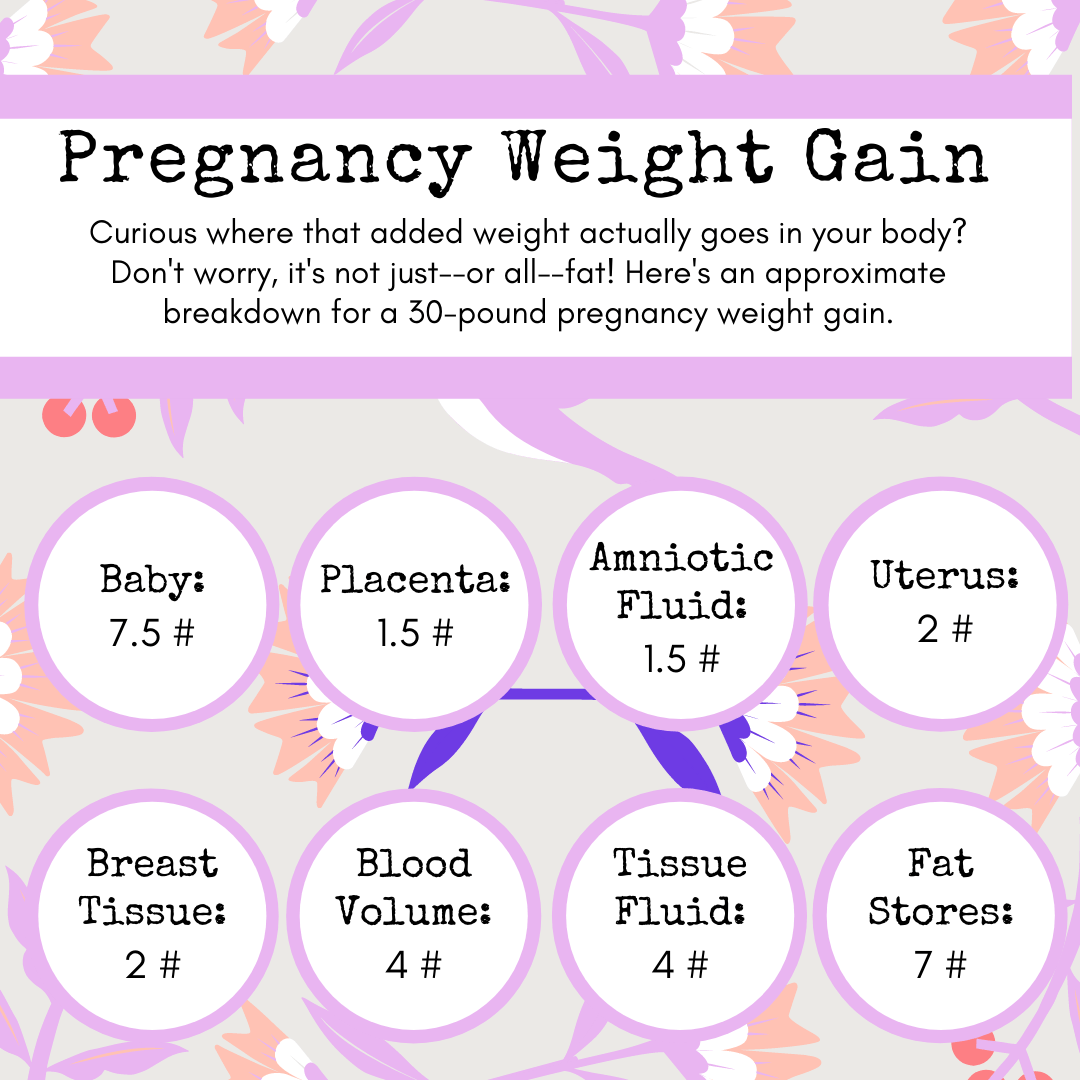Weight gain is inevitable in pregnancy. There are a lot of huge changes happening in you body; you are, after all, growing a human being! And it’s important that you fuel your body well to provide both you and baby with the necessary nutrition to keep you healthy.
But fear not! The weight you’re gaining is not all—or even mostly!!—fat. There’s a lot of added blood and fluid volume in your body to support baby and the hormonal changes, and there are growing organs and a growing baby to take into account.

There’s a risk that gaining too little weight may mean delivering a small baby, which comes with a few risks: the possibility of difficulty breastfeeding, increased risk for illness and possible developmental delays.
On the other end of the spectrum, gaining more than the recommended amount of weight means possibly delivering a large baby, which also has some risks: delivery complications, C-section delivery and obesity during childhood. And gaining excess weight during pregnancy will likely just be more difficult for you to shed postpartum, as well.
In the first trimester, expect to gain the least amount of weight—maybe 2 to 4 pounds. Some women lose weight, especially if they’re struggling with morning sickness, and others may be on the higher side due to the need for constant snacking to keep the nausea at bay.
In the second trimester, when baby starts really growing, there will be a gain of roughly 12-14 pounds. Then, in the third trimester, baby gains more weight and “fattens up” while your weight gain slows a bit (maybe 8-10 pounds). Some women find they lose a little weight towards the end of their pregnancy, as their abdomen feels pretty squashed and it’s more challenging to eat.
Here are some tips (courtesy of the CDC) to help encourage you and a healthy pregnancy weight gain:

-
Keep track of your weight gain to know if you’re progressing at a healthy rate.
-
Eat a balanced diet: whole grains, fruits, vegetables, proteins.
-
Eat the right amount of calories for your body and for your trimester. In the first trimester, you do not need to consume any extra calories. Second trimester means about 340 additional calories, and then 450 additional calories during the third trimester.
-
Be active! An active pregnancy is said to make your labor shorter and recovery faster, as well as reducing your risk of pregnancy complications (gestational diabetes, preeclampsia). It’s recommended to get 150 minutes of aerobic activity per week, and to incorporate some strength-training or muscle-strengthening exercises twice per week. Just be sure to avoid contact sports or lying flat on your back (causes problems with blood flow).
